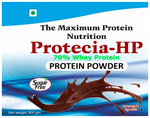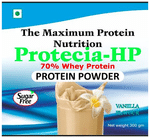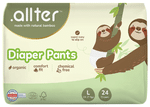If you mention high-protein foods, eggs are the first food that likely pops into mind. After all, a single large egg provides you with about 6 grams of protein along with good fats, vitamin B12, and choline for brain wellness. But here’s the catch, eggs are not the highest source of protein. There are indeed many foods that have more protein than eggs, many of which are staples in Indian households and some that are international favorites.
Whether your mission is muscle-building protein, a vegetarian high-protein diet, or just remaining healthy past 40, knowing the top protein sources can assist you in making more informed food decisions daily.
Why Protein is Important for Any Diet
Protein’s not about biceps. Protein is involved in nearly every bodily function:
- Repairing and building muscle – important for athletes, gym enthusiasts, and anyone recovering from sickness.
- Hormones and enzymes – most are protein-based and control important body functions.
- Metabolism and weight control – makes you feel fuller for longer, suppressing cravings.
- Healthy aging – stops muscle wasting (sarcopenia), an age-related problem after 40.
Based on the Indian Council of Medical Research (ICMR), adults require approximately 0.8–1 g of protein per kg of body weight every day. For a person weighing 60 kg, that’s 48–60 g a day. Unfortunately, research indicates that 73% of urban Indians suffer from protein deficiency, primarily because our diets are filled with rice, rotis, and other carbohydrate-rich foods.
Therefore, selecting natural protein foods becomes even more crucial.
Foods With Higher Protein Content Than Eggs: The Top 20 List
Below are 20 high-protein Indian foods and world staples that contain higher protein content than eggs, ideal for all types of diets.
Animal-Based High Protein Foods
1. Chicken Breast – 31 g protein per 100 g
Lean classic protein is extensively utilized for muscle gain and weight reduction.
2. Turkey Breast – 29 g protein per 100 g
Similar to chicken but with even lower fat content.
3. Tuna – 28 g protein per 100 g
Also high in omega-3 fatty acids for heart health.
4. Salmon – 25 g protein per 100 g
Combines protein with anti-inflammatory omega-3 fats.
5. Prawns/Shrimp – 24 g protein per 100 g
A low-calorie, high-protein seafood option.
6. Lean Beef – 26 g protein per 100 g
Iron-rich, aids in the formation of red blood cells.
7. Paneer (Cottage Cheese) – 18 g protein per 100 g
Vegetarian delight, great for curries and snacks.
8. Cheddar Cheese – 25 g protein per 100 g
Very high in protein and calcium, but must be consumed in moderation.
9. Greek Yogurt – 10 g protein per 100 g
A gut-friendly source with probiotics.
10. Cow’s Milk – 8 g protein per 200 ml glass
A staple source of complete protein.
Plant-Based Protein-Rich Vegetarian Foods
11. Soybeans – 36 g protein per 100 g
The highest plant-based protein food, versatile in Indian cooking.
12. Tofu – 8 g protein per 100 g
Vegan-friendly alternative to paneer.
13. Lentils (Dal) – 18 g protein for every 200 g cooked
Indian staple food; low cost, high nutrition.
14. Chickpeas (Chana) – 19 g protein per 100 g dry
Ideal for curries, chaat, or hummus.
15. Kidney Beans (Rajma) – 24 g protein per 100 g dry
Delectable with rice, a filling vegetarian dish.
16. Quinoa – 14 g protein per 100 g
A gluten-free grain that is also a complete protein.
17. Pumpkin Seeds – 19 g protein per 100 g
Great as a roasted snack or salad topper.
18. Chia Seeds – 17 g protein per 100 g
Rich in omega-3s and fiber, perfect for smoothies.
19. Peanuts – 25 g protein per 100 g
An affordable, protein-packed Indian snack.
20. Almonds – 21 g protein per 100 g
One of the heart-healthy protein sources.
Also read :
Protein Comparison Table: Eggs vs High-Protein Foods
| Food Item | Protein (per 100 g) | Type | Indian-Friendly |
| Egg | 6 g per egg | Animal | Yes |
| Chicken Breast | 31 g | Animal | Yes |
| Soybeans | 36 g | Plant-based | Yes |
| Paneer | 18 g | Dairy/Veget. | Yes |
| Rajma | 24 g | Plant-based | Yes |
| Peanuts | 25 g | Plant-based | Yes |
| Quinoa | 14 g | Plant-based | Imported |
| Salmon | 25 g | Animal | Uncommon in India |
Evidently, animal-based and plant-based foods can beat eggs in terms of protein.
Adding These Foods to a Protein-Dense Diet
Here are some easy ways to fulfill your protein requirements without overcomplicating things:
- Breakfast: Paneer paratha with curd or Greek yogurt with chia seeds.
- Lunch: Rajma chawal, dal with roti, or quinoa pulao.
- Snacks: Roasted chana, peanuts, almonds, or pumpkin seeds.
- Dinner: Grilled chicken, prawn curry, or soy-based sabzi.
Tip: Pair plant and animal protein foods (such as dal + curd, or chicken + rajma) to get maximum nutrition and satisfaction.
Key Takeaways
- Eggs are nutritious, but not the richest protein food; soybeans, chicken, peanuts, and rajma have more.
- Vegetarians and vegans can bank on dals, chana, soy, quinoa, nuts, and seeds as protein sources.
- Indian foods high in protein are not costly and accessible everywhere, and therefore, it is simple to develop a balanced diet.
- Combining animal and plant proteins helps maintain muscle mass, control weight, and promote healthy aging.
- Without supplements, you can achieve your daily requirements with natural foods rich in protein.
Frequently asked questions :
1. What Indian vegetarian food contains the most protein?
Soybeans, 36 g of protein per 100 g.
2. What are the top protein sources for muscle building?
Chicken, fish, paneer, soy, and dals.
3. Is it possible to get enough protein without eggs and meat?
Yes. Rajma, chana, soy, paneer, nuts, and seeds are good substitutes.
4. What are some good protein snack options for Indians?
Roasted chana, boiled peanuts, paneer cubes, yogurt with seeds.
5. Are foods that are high in protein naturally better than supplements?
Yes. Whole foods come with extra vitamins, minerals, and fiber.
6. How much protein should I consume each day?
About 48–60 g in a 60 kg adult, increased if you’re highly active.
Conclusion
Eggs are good, but they’re not the sole protein choice. From soybeans and rajma to chicken, paneer, peanuts, and almonds, there’s no dearth of foods higher in protein than eggs that work beautifully into the Indian palate.
By combining both plant protein foods and animal protein foods, you can comfortably maintain a high-protein diet that promotes muscle gain, weight maintenance, and general well-being.
Plan your next meal thinking outside eggs your body will be grateful.













Leave a Reply